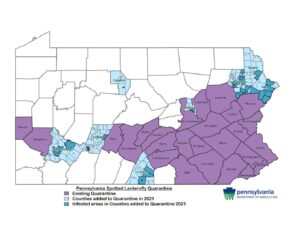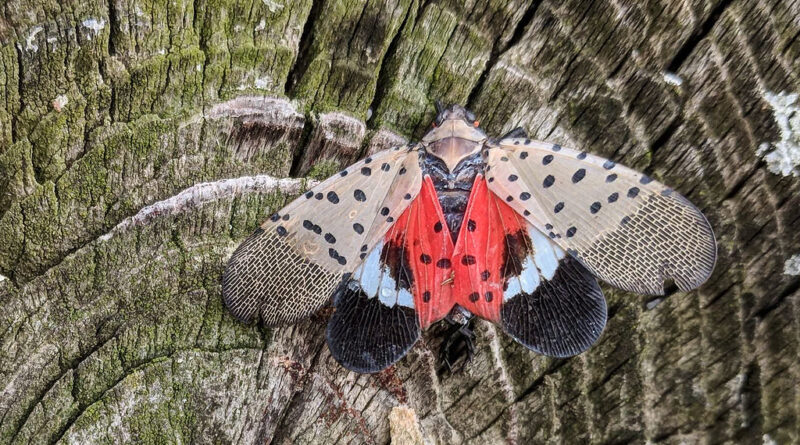Lions and Tigers and Bears and… Spotted Lanternflies…?
Spotted lanternflies have taken over. First seen in Berks County, Pennsylvania in 2014, the spotted lanternfly has invaded 34 counties in PA, including Franklin county. Native to southern China, the spotted lanternfly is a foreign, invasive species that is terrorizing plants and people in Pennsylvania.
The spotted lanternfly (Lycorma delicatula) is about an inch long and half an inch wide. Their front wing, or forewing, is a gray/tan color with black spots and reticulated squares on the tips. The back wings, or hind wings, are black and red with a vertical white band on them.

The spotted lanternfly’s abdomen is yellow with black stripes and the head and legs are both black.
Experts recommend killing the spotted lanternfly on sight. The insects are major pests, not just because they are bugs, but because they damage property and crops and plants. Spotted lanternflies eat through crops and they also secrete a sweet sticky substance called honeydew. This sticky honeydew gets all over trees, plants, outdoor furniture, children’s playsets, everything. The real problem with it though is that honeydew creates a black mold. While this particular black mold from the honeydew is not harmful to humans, it kills plant life. The insects also are a problem to people because they cover trees and swarm, creating a kind of cloud of gross sticky insects that makes a mess wherever they land.
So what can you do besides killing them to help? In the winter is it important to check for spotted lanternfly eggs. The eggs generally are laid on flat surfaces and also on trees. Spotted lanternflies have a thing for the tree of heaven in particular. When their egg masses are found, they can be scraped up and put in a plastic bag full hand sanitizer and thrown away. The other important thing to do is to report your spotted lanternfly sightings. In Pennsylvania, use the interactive plant pest quarantine map and reporting tool. If you do not live in an area that is presently in the quarantine zone, then you can report it at the Pennsylvania State University Extension or call 1-888-4-BADFLY (1-888-422-3359).

